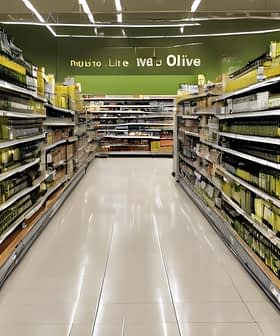EU-Mercosur Agreement Paves the Way for Tax-free Agricultural Trade
It is the largest deal the EU has struck in terms of tariff reduction, and also the one that has raised most concerns for repercussions on various business sectors and the environment.
The European Union and the Mercosur bloc (comprised of Argentina, Brazil, Uruguay and Paraguay), have agreed terms on a new trade deal that will remove existing red-tape and tax barriers and facilitate the smoother exchange of products and services between the two.
The agreement, which is still in principle, took 20 years of negotiations between the two blocs and creates a joint market of almost 780 million consumers. Both the EU and Mercosur will liberalize more than 90 percent of traded goods and services over a transitional period of five to 15 years.
EU’s industrial sector will have tariffs waived for many products exported to South America, including cars and car parts, machinery, pharmaceuticals, clothing and footwear. The agri-food sector will also enjoy a duty-free status for products such as cheese, wine, olive oil and olives, fruits, spirits and soft drinks, chocolates and confectioneries.
This is obviously great news for companies, workers and the economy on both sides of the Atlantic, saving over €4 billion worth of duties per year.
For olive oil, in particular, there is currently a tax of 10 percent imposed on exports from the EU to the Mercosur countries, with the annual worth of exports reaching €300 million ($336 million). When the agreement is fully deployed, the tax will be eliminated.
Furthermore, provision has been taken for the special Geographical Indication (PDO and PGI) status of several EU products to be acknowledged by the Mercosur countries. Quality products such as Port wine, Champagne, Prosciutto di Parma and Kalamata Olives will still have their names legally protected from imitations.
The pact also introduces the concept of ‘regionalization’ for the European products, meaning that if a pest or disease appears somewhere in the EU, then exports can continue from other non-affected regions of the Union.
See Also:Trade NewsIn turn, the Mercosur countries will gain easier access to the European common market and lowered or zeroed taxes with increased export quotas for a number of products including beef, poultry, sugar, ethanol, orange juice and coffee.
The EU will also protect the names of traditional Mercosur products, such as Cachaça (a Brazilian distilled spirit) and Mendoza wine, from Argentina.
Safety mechanisms are also in place so that, in cases of emergency, both parts can use tariffs or other proper measures to prevent imports of specific products, including agricultural products, from overwhelming local production.
The newly agreed pact is the largest trade deal the EU has struck in terms of tariff reduction, estimated to save European exporters up to €4 billion ($4.49 billion) paid in customs duties each year.
Jean-Claude Juncker, the president of the European Commission, welcomed the agreement by bolstering its significance at a time of turbulence in world trade.
“I measure my words carefully when I say that this is a historical moment,” he said. “In the midst of international trade tensions, we are sending today a strong signal with our Mercosur partners that we stand for rules-based trade. Through this trade pact, Mercosur countries have decided to open up their markets to the EU. This is obviously great news for companies, workers and the economy on both sides of the Atlantic, saving over €4 billion worth of duties per year. This makes it the largest trade agreement the EU has ever concluded.”
The agreement has also drawn criticism for compromising economic activities and business sectors on both sides of the Atlantic.
France and other European countries expressed concerns over a likely surge of beef imports from South America, posing a threat to the meat industry of the EU. Furthermore, the Irish Farmers Association dismissed the deal as a “sellout” of Irish farmers and a “bad deal” for Ireland and the environment.
Italian wine producers, on the other hand, protested about the agreed term that European wines directed to the South American market will have their duties abolished no sooner than 15 years after the pact has become effective, depriving them of increasing their exports and revenue earlier.
More EU farmers lobbies opposed the agreement as an undermining factor of their business, arguing that it will bring unfair competition since Latin growers and producers will not abide by similar agricultural standards as their counterparts in Europe.
European officials have rejected the concerns, noting that the deal contains strict monitoring mechanisms to ensure that European standards remain intact and producers are unhurt by the deal.
“You can be sure that compliance or adherence to our standards is a starting point,” Sigrid Kaag, the Dutch minister of trade, said. “I’m fully mindful of the fact that there are also advocacy groups or concerned citizens that feel that you’re in a different position once you have signed up to a deal, but that’s also ignoring all the benefits that a trade agreement will bring. It’s not a zero-sum game.”
The pact also commits both sides to adopt the 2015 Paris Climate Accord, a significant move toward protecting the environment according to the European Commission, but it was characterized as only ‘paying lip service’ to the Paris Agreement by Anna Cavazzini, a Member of the European Parliament from Germany’s Green party.
Environmentalists also argued that it will urge growers in South America to produce more by eliminating whole areas of the rainforest to create an open ground for cultivation, and ultimately will deteriorate the deforestation of the Amazonia.
In Latin America, Mauricio Macri, the Argentine president, saluted the deal as “the most important agreement we’ve signed in our history,” but detractors claimed it will bring more woes than joy.
“I don’t want to live in a country where the only chance for progress is selling grains and beef. I want industries,” said Alberto Fernández, a politician in Argentina, while workers unions warned that the expected massive imports of cheaper European products will result in a cutback of jobs in the manufacturing sector of Mercosur countries.
Others consider it an opportunity for the four South American countries to demonstrate to the world that their economies are now open, as Jorge Faurie, the Argentinian foreign minister, stated.
“[The Mercosur has been] a very closed economic space… this is a very clear message of where we are going,” he said.
Farmers associations, on the other hand, greeted the pact. Sociedad Rural Argentina spoke of a “historic agreement,” and Abrafrutas, Brazil’s fruit exporters association, said that the deal will help local producers remain competitive. Argentina’s National Association of Entrepreneurs was skeptical however, fearing that the deal will benefit multinational firms at the expense of small and medium-sized companies.
The agreement has yet to be approved by each one of the four Mercosur countries, the 28 EU member states and the European Parliament, and it could take years to come into effect.








